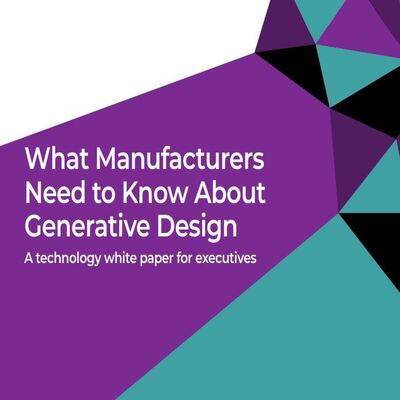
whitePaper | September 4, 2022
It’s the clarion call of today’s marketplace and the prime directive for executives in any business that designs or produces physical goods, no matter how simple or sophisticated. Fortunately, every product can be improved and made at less cost. But how quickly a company can satisfy such demands – before, say, its competitors do, or the market moves on to something new – is largely a function of the product-development cycle. Shorten that cycle, and you can improve the numbers across the board, from customer satisfaction to market share to profitability.
However, one seemingly intractable barrier to faster product development lies within the traditional design process. That process starts with identifying a need in the market or within one’s organization; it ends with the manufacture of a finished product, whether a massive, complex assembly or one tiny part. In between are multiple iterations of designs and tests: engineers sketch out a solution, prototype and test it (or run a computerized simulation), and then go back to the design to address any shortcomings. But trade-offs complicate matters each time the cycle repeats: make a part lighter and it’s likely to become weaker, make it stronger and it will probably cost more, and so on. A workable, if not optimal, solution can usually be found. However, finding it often takes longer than the product-development timeline or budget will allow.
Read More